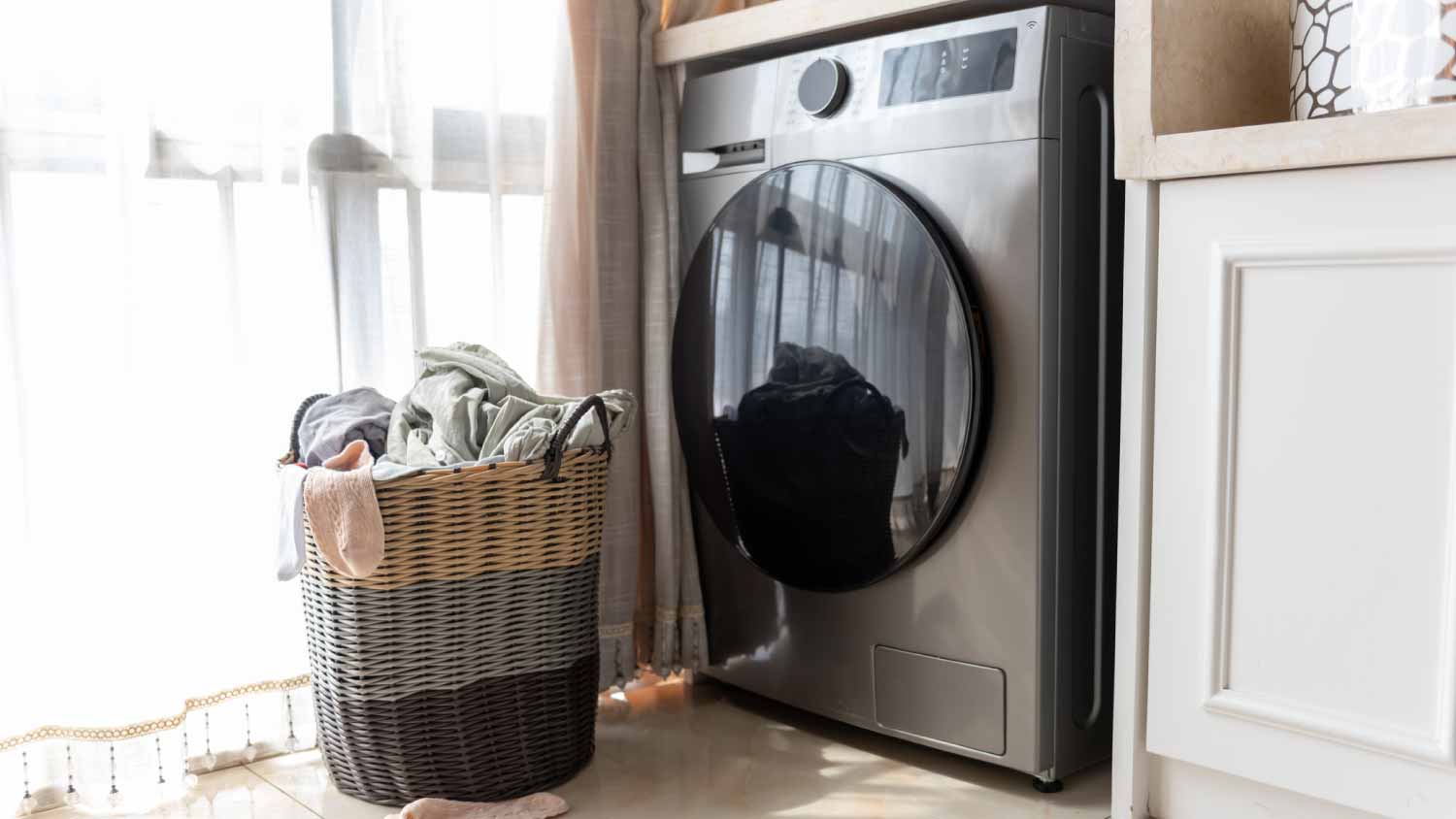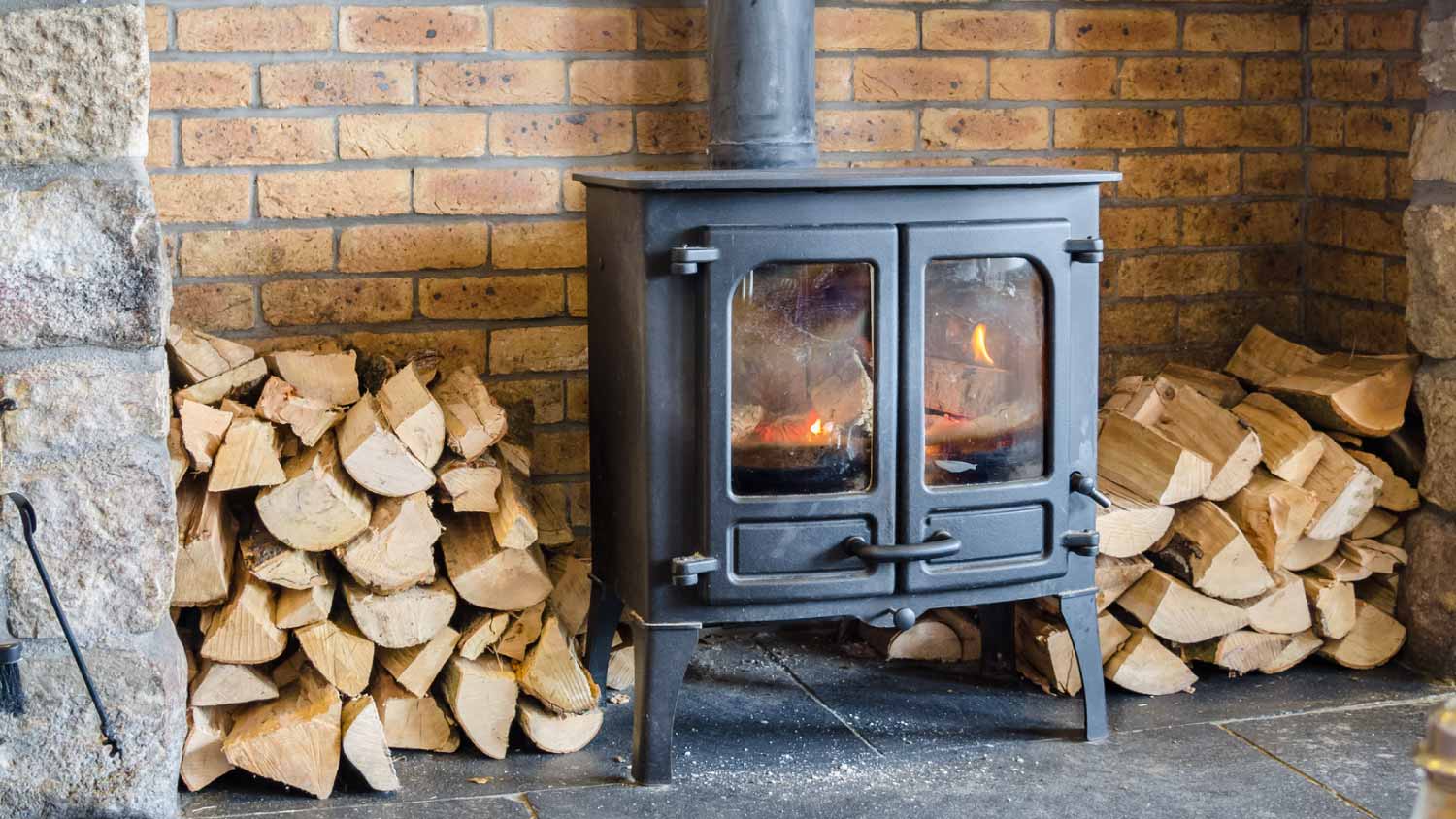8 Things to Consider When Deciding Whether to Move Your Laundry Upstairs
Does an upstairs laundry room makes sense for you and your family?


People seem to divide into one of two camps when it comes to upstairs laundry rooms: They either love them or they hate them. If you’re thinking about moving your laundry room up a floor or two, make sure you’ve considered exactly what that means before you commit to a remodel.
1. There’s an Increased Risk of Damage From Flooding
You won’t necessarily face an increased likelihood of flooding when you move the laundry room to a higher floor, but if that flooding does occur, the damage can be more extensive and more difficult to remedy.
Flooding from a faulty washer will never be “no big deal.” However, if your washing machine’s hose breaks or the washer overfills with water, the resulting water can cause a lot more damage if it’s on the second floor than if it were on the ground floor or in your basement.
You can mitigate this risk with an easily accessed water shut-off valve in your laundry room and using a drain pan beneath the washer to contain water if leaks do happen.
2. It’s Far More Convenient
If you suffer from low back or knee pain, you know how hard on your body it can be to tote loads of laundry down and up the stairs. It’s also much more convenient and accessible for people with mobility issues, who might find it easier if they can do their laundry on the same floor as their primary bedroom and bathroom areas.
Keeping your laundry room on the same floor as your bedrooms and bathrooms means you no longer have to lug dirty clothes, linens, and towels down the stairs to wash and dry, then back up to sort and put away. Save your back with an easy stroll down the hallway!
3. You Won’t Need All Those Hampers
Laundry hampers in every bedroom and every bathroom take up space, which you can free up with an upstairs laundry room. Just put a few color-sorted hampers in the laundry room and have every member of your family take anything they need washed there. Even freeing up a little bit of space by removing a hamper can make a bedroom or closet feel a lot roomier and easier to use.
4. You’ll Save Time
In addition to being more convenient, using an upstairs laundry room will save you and your family time that you can put to other, more rewarding uses. You’ll save even more time if you follow the above suggestion and put your laundry hampers in the laundry room itself. No need to make the rounds and collect dirty clothes and towels—just start a load whenever the hamper’s full!
5. It Might Get Hotter
Dryers can generate a lot of heat when they’re running. When you use the dryer during the already-hot summer months, that extra heat can make keeping the rooms on that floor of your home cool much more difficult (remember: heat rises!).
Shutting the laundry room door and timing your laundry cycles to avoid the hottest part of the day can help mitigate that heat, but it might be a factor if your home is difficult to cool.
6. Added Noise Can Be a Problem
Washers and dryers can kick up quite a ruckus when they’re running. In fact, they’re usually the loudest appliances in your home. If your machines are downstairs, those sounds are muffled by flooring.
However, when you relocate your laundry room upstairs, the noises can be quite loud and disruptive. That may not be a huge consideration for you or your family, but if you have infants or small children who take mid-day naps or older kids doing homework in their bedrooms, you might want to consider whether the noise might wake them up.
Proper insulation can help reduce the noise, although the vibrations from the running machines can also be disruptive.
7. Do You Have an Appropriate Room Available?

It’s not that difficult to relocate a laundry room upstairs, as long as that room has the minimum required features. Essentially, your new laundry room will need to be structurally capable of supporting the weight of your washer and dryer, and have access to drainage, electricity, and (of course) a water supply.
Moreover, if you have a vented dryer, you’ll need to place it against an exterior wall so that it has access to the outdoors. (You can also purchase ventless dryers, but they’ll take twice as long to dry your clothes on average.)
If you only have interior rooms available for use as an upstairs laundry room, you’ll have a tough time making those connections work.
8. You May Need Expert Help
Unless the room you’re converting to laundry purposes already has the appropriate connections, you’ll likely need to hire a local plumber and possibly an electrician near you to provide the necessary infrastructure for your washer and dryer.
Professional assistance will ensure that your washer and dryer are properly connected and functional. However, it will add extra costs to your project budget, which you’ll want to take into consideration.



.jpg?impolicy=leadImage)

- Appliance Repair Companies
- Washing Machine Repair
- Dryer Repair
- Refrigerator Repair
- Dishwasher Repair
- Oven Repair
- Wood & Pellet Stove Repair
- Freezer Repair Services
- Wood Stove Services
- Gas Stove Repair
- Emergency Appliance Repair Companies
- Ice Maker Repair
- Gas Appliance Repair
- GE Appliance Repair
- GE Refrigerator Repair
- GE Dryer Repair
- GE Dishwasher Repair
- GE Washing Machine Repair
- Samsung Appliance Repair
- Samsung Refrigerator Repair
- Samsung Dryer Repair
- Samsung Washer Repair
- Samsung Dishwasher Repair
- Samsung Oven Repair
- Whirlpool Repair
- Whirlpool Refrigerator Repair
- Whirlpool Washer Repair
- Whirlpool Dryer Repair
- Whirlpool Oven Repair
- Maytag Appliance Repair
- Maytag Refrigerator Repair
- Maytag Washer Repair
- Maytag Dryer Repair
- Maytag Dishwasher Repair
- Kitchenaid Appliance Repair
- Kitchenaid Oven Repair
- Kitchenaid Refrigerator Repair
- Kenmore Appliance Repair
- Kenmore Dishwasher Repair
- Kenmore Washer Repair
- Kenmore Dryer Repair
- LG Refrigerator Repair
- Bosch Appliance Repair
- Kenmore Refrigerator Repair
- LG Appliance Repair Services
- GE Microwave Repair
- Electrolux Appliance Repair
- Electrolux Washer Repair
- Kitchenaid Dishwasher Repair Services
- Wood Stove Inspection
- Dishwasher Installation
- Trash Compactor Repair
- How to Clean Your Laundry Room: An Easy Laundry Room Cleaning Checklist
- 7 Laundry Room Renovation Tips to Make the Most of Your Project
- 9 Apartment Laundry Room Ideas for Even the Smallest Spaces
- 12 Simple Laundry Room Remodeling Ideas for a Major Upgrade
- 27 Inspiring Laundry Room Decor Ideas
- 10 Easy Ways to Save Money on Laundry
- Storage ideas for every room in your house
- Laundry Room Plumbing Code: What You Need to Know
- Washer and Dryer Dimensions: Side-by-Side, Stacked, and More
- Learn How to Clean Your House (and Maybe Even Have Fun Doing It) With These 27 Tips










